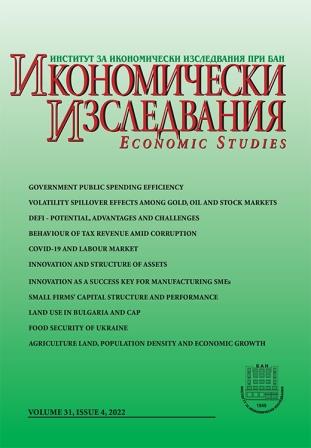The Behaviour of Tax Revenue amid Corruption in Nigeria: Evidence from the Non-Linear ARDL Approach
The Behaviour of Tax Revenue amid Corruption in Nigeria: Evidence from the Non-Linear ARDL Approach
Author(s): Nurudeen Abu, Mohd Zaini Abd Karim, Joseph David, Musa Abdullahi Sakanko, Onyewuchi Amaechi Ben-Obi, Awadh Ahmed Mohammed GamalSubject(s): Economy, Business Economy / Management, Public Finances, Accounting - Business Administration
Published by: Институт за икономически изследвания при Българска академия на науките
Keywords: Tax revenue; Corruption; NARDL technique; Nigeria
Summary/Abstract: One of Nigeria’s greatest challenges is the generation of adequate tax revenue to meet her rising expenditure, and the country has continued to contend with corruption, particularly in its public sector. We employ the non-linear autoregressive distributed lag (NARDL) technique to examine tax revenue behaviour amid corruption using Nigeria’s quarterly data over the 1999-2019 period. The result of the NARDL bounds test to cointegration demonstrates the presence of a long-run relationship between tax revenue and corruption along with income level, agriculture, inflation rate, foreign aid and female labour force participation. The results of estimation indicate the existence of asymmetry in tax revenue behaviour. We find evidence of a significant positive impact of negative changes in the control of corruption and a significant negative effect of positive changes in the control of corruption on tax revenue in the long run. Other long-run significant determinants of tax revenue in Nigeria include income level, foreign aid and female labour force participation. Based on these empirical outcomes, this study offers some recommendations.
Journal: Икономически изследвания
- Issue Year: 2022
- Issue No: 4
- Page Range: 55-76
- Page Count: 22
- Language: English

